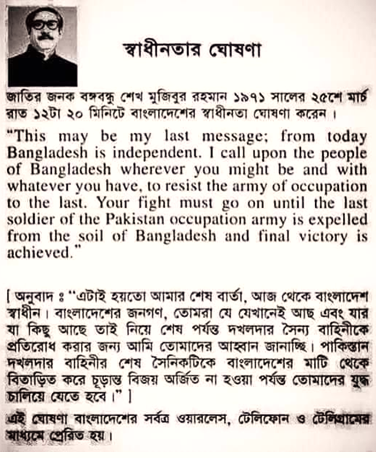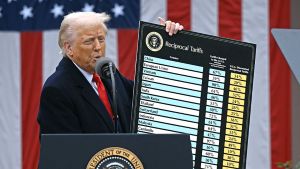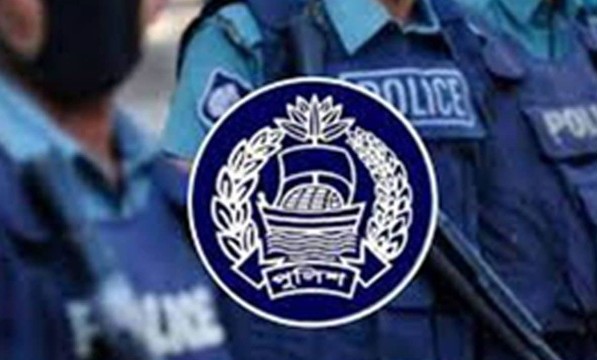
Decleration of Independence by Sheikh Mujibur Rahman
How Sheikh Mujib struggled to liberate Bangladesh and the Bengali Nation
Revisiting Bangladesh’s History of Independence
Bangladesh’s interim government, led by Professor Muhammad Yunus, has faced significant backlash for actions perceived as disrespectful to the country’s War of Independence. Controversies have arisen from decisions such as cancelling the National Mourning Day holiday on August 15, eliminating commemorations for Sheikh Mujibur Rahman's iconic March 7 speech, and revoking "Joy Bangla" as the national slogan. These decisions have sparked debates about the government's attempts to alter national symbols and their implications for the country's identity.
In this context, it is crucial to revisit the true history of Bangladesh's glorious War of Independence, led by the country’s founding father, Sheikh Mujibur Rahman, and the supreme sacrifices made by millions of patriotic Bengalis, including valiant freedom fighters and Birangonas.
The Pretext of the War of Independence
Systematic cultural, economic, and linguistic discrimination against Bengali people began soon after the creation of Pakistan from British India in 1947.
-
Political Exploitation: Prolonged military rule and dominance in government and bureaucracy made it difficult for Bengalis to access political power and higher decision-making posts.
-
Cultural Discrimination: In 1948, the Pakistani government declared Urdu as the only official language and forcibly suppressed the demand for recognizing Bangla as an official language.
-
Economic Exploitation: West Pakistan treated East Pakistan as a colony, channelling resources away from the East. Less than 10% of the total budgetary expenditure was allocated to East Pakistan.
-
Disparity in Education: Between 1947 and 1971, growth in educational institutions, enrolments, and higher education in East Pakistan declined steeply.
The Milestones of the Historic Event
-
1970 Elections: Sheikh Mujib's party, the Awami League, won a landslide victory in the national elections, but the ruling authorities in West Pakistan denied transferring power.
-
March 7, 1971 Speech: Mujib delivered a historic speech at the Ramna Racecourse in Dhaka, East Pakistan (now Bangladesh), calling for the independence of East Pakistan, which later became Bangladesh. This speech is considered a pivotal moment in the history of Bangladesh's independence movement. Sheikh Mujib called for civil disobedience and effectively declared the independence of Bangladesh, urging the Bengali people to prepare for a struggle for their liberty and independence. The speech is remembered for its powerful and emotional appeal, inspiring the Bengali people to fight for their rights and freedom. The 7th of March Speech was recognized by UNESCO and added to the Memory of the World Register on October 30, 2017, celebrating its powerful call for independence and civil disobedience.
-
March 26, 1971 Declaration: Mujib formally declared independence for Bangladesh with the following message: “This may be my last message: From today Bangladesh is independent. I call upon the people of Bangladesh, wherever you may be and with whatever you have, to resist the army of occupation to the last. Your fight must go on until the last soldier of the Pakistan occupation army is expelled from the soil of Bangladesh and final victory is achieved.” Although he was arrested by the Pakistani military shortly after, his declaration galvanized the Bengali population and the Mukti Bahini (freedom fighters) to continue the struggle while Mujib was in solitary confinement in West Pakistan pending a death verdict by the Pakistani government.
-
Liberation War: The war lasted for nine months, culminating in the surrender of Pakistani forces on December 16, 1971. With the help of the Indian military, Bangladesh emerged as an independent nation.
Timeline of an Era of Sheikh Mujib: The Greatest Bengali of All Time
-
Early Life and Political Ideology: Sheikh Mujibur Rahman's student life in Calcutta between 1942-47 profoundly influenced his secular political ideology despite being a Muslim. In 1943, he was elected councillor of the All-India Muslim League from Bengal and continued to serve admirably until the partition of India in 1947. Having volunteered to save lives during the 1946 Hindu-Muslim riot, he was the leading student politician from East Bengal to join Mahatma Gandhi’s 1947 peace mission.
-
Leadership in Language Movement: After completing his graduation from Calcutta University, Sheikh Mujib became a law student at the University of Dhaka. In 1948, he was elected the Chief Coordinator of the All-party State Language Action Committee and led the Bangla Language movement from the frontline.
-
Rise in Awami League: In 1953, Sheikh Mujib was unanimously elected the General Secretary of the largest political party of the Bengali people, the Awami Muslim League. This was a vindication of the confidence Bengalis reposed in him and his vibrant and fearless political posture. Under his leadership, the Awami Muslim League was renamed the Awami League by dropping the word ‘Muslim’ to open the doors of the party to all, regardless of religion.
-
Six-Point Demand and Political Ascendancy: The Six-Point Demand, declared by Sheikh Mujibur Rahman on February 5, 1966, was a pivotal moment in the struggle for Bangladesh's independence. This demand aimed to address the political and economic disparities between East and West Pakistan. Here are the key points of the Six-Point Demand:
-
Pakistan would have a federal structure of government based on the spirit of the Lahore Resolution of 1940, with a parliament elected based on a universal adult franchise.
-
The central government would have authority only in defence and foreign affairs, with all other subjects managed by the federating units.
-
There would be two freely convertible currencies for the two wings of Pakistan or two separate reserve banks for the two regions of the country.
-
The power of taxation and revenue collection would be vested in the federating units.
-
There would be two separate accounts for foreign exchange reserves for the two wings of Pakistan.
-
East Pakistan would have a separate militia or paramilitary force as a measure of its security.
-
1970 Elections and March 7 Speech: In 1970, his party, the Awami League, secured 167 out of 169 seats in the National Assembly and 288 out of 300 seats in the Provincial Assembly in a landslide victory in the general elections of Pakistan. Despite this victory, Bangabandhu’s proposal to form a government was rejected by Pakistan President Yahya Khan, who also denied handing over power to the winning party or allowing Bangabandhu to assume the premiership. Following the categorical rejection by Pakistan’s ruling government of Bangabandhu’s democratic right to form a government, Bangabandhu declared at a mammoth public rally in Dhaka’s Racecourse Ground on March 7, 1971: “The struggle this time is the struggle for emancipation. The struggle this time is the struggle for independence.”
-
Declaration of Independence and Liberation War: Following the treachery of the Pakistan government in fulfilling any of their false promises to a power-sharing formula and the launching of armed forces in East Pakistan, he declared Bangladesh’s independence shortly after midnight on March 25, 1971. He was shortly thereafter arrested by the Pakistan Army, which started the brutal mass killing of freedom-loving Bengalis on the black night of March 25 and carried out a nine-month genocide until December 16, 1971.
-
Mujibnagar Government and Victory: On April 17, 1971, Sheikh Mujib was elected President of the Mujibnagar Government, an interim government formed to give leadership and direction to the Bangladesh Liberation War of 1971. On December 16, 1971, Pakistani occupation forces surrendered, conceding defeat in the glorious War of Independence of Bangladesh led by the Mujibnagar Government. Mujib, who was taken prisoner to Pakistan for 10 months, returned to his beloved homeland on January 10, 1972, to take leadership of independent and sovereign Bangladesh.
-
Global Recognition and Assassination: Having attained Bangladesh’s membership at the United Nations on September 17, 1974, he made history by delivering his maiden speech in Bangla at the United Nations General Assembly (UNGA) on September 24, 1974, earning him global acclaim as one of the most charismatic leaders from the South.
On August 15, 1975, Bangabandhu, the Father of the Nation and the greatest Bengali of all time, was brutally assassinated by a handful of ambitious and treacherous military officers.



